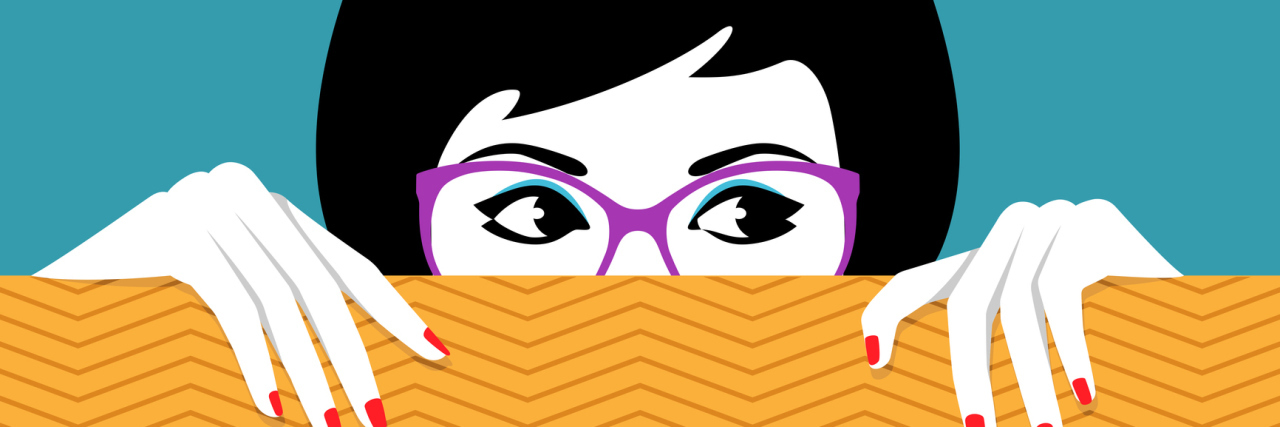I thought I couldn’t be an eating disorder advocate until I had to be.
Most people would tell you that I’m an extrovert, a “chatty Cathy,” an open book or whatever similar phrase you want to use. They would be somewhat correct, but there’s always been a part of my book I couldn’t open to others. I always marveled at those who can use their mental illness or eating disorder to fight against the stigma surrounding mental health. I would feel a tinge of jealousy at how they could use their experiences to speak for those who have been marginalized, wishing that I could do the same, and wishing that my story could matter.
I would hear comments in the break room at work or in public spaces, and I would want to speak up so badly, but I just couldn’t. Ask me about my kids or my dogs, and I could talk forever about how funny they are, what they are into and so much more. But when it came to being authentic about my experiences with mental illness and my eating disorder, I couldn’t be the advocate. I couldn’t use my own experiences to shed light on the injustice of stigma, judgment and mistreatment. I was so afraid of being “extra,” attention seeking, dramatic and any other stereotype that might be hurled at people who are open about living with any type of mental illness. I couldn’t do it. It was terrifying. That is until I got mad as hell and just couldn’t take it anymore!
We often see the Mahatma Gandhi quote, “Be the change you wish to see in the world.” It’s used to inspire us to be the change maker where one is needed, and I love it. That is why I turned it on myself, in order to become the eating disorder advocate I wish to see in the world: the advocate that I and so many others need.
Why would I need to be an advocate when there are seemingly so many? I’m glad you asked! In addition to being diagnosed with OSFED (other specific feeding and eating disorders), I am also diagnosed with type 2 diabetes. As you can imagine, managing both conditions requires you to think about food, but in completely opposite ways. When I am solely focused on my eating disorder recovery, I am challenging the thoughts urging me not to eat or to limit what I eat. But if I were focusing solely on the diabetes, one would think that I would have to make drastic changes, be very regimented and disciplined. Everywhere you turn there is a new miracle diet promising to “cure” diabetes, reduce A1C and finally give you control!! It sounds great! But it isn’t.
In order to manage both conditions at the same time, I must fly in the face of everything we are told about health, wellness and what society thinks about both conditions. I must fully trust my dietitian and primary care physician when they tell me that I am doing everything I am supposed to be doing when it comes to managing my health. I must relinquish the control my eating disorder tells me I need and allow the trusted professionals in my life to guide me along this journey. I must challenge the stereotypes about both being a diabetic and someone who lives with an eating disorder. I don’t necessarily fit the stereotype for either condition, but that doesn’t invalidate what I live with.
Every day, I challenge those around me to think about the information they hear regarding eating disorders and type 2 diabetes. I often forward information to people I know who have diabetes because the bad information out there is more prevalent than the good and sound information. I don’t want others to fall into the same behaviors or fall prey to the next diet fad that comes along. Most importantly, I want others to be able to live with the peace and freedom that I am growing into and so much deserve. Regardless of our diagnosis, we deserve to nourish our bodies with food that is good for us and is enjoyable, too.
So here I am, Gandhi! Advocating for all the diabetics with eating disorders! I am here to tell you that managing and controlling your diabetes doesn’t have to look like a “party” for your eating disorder. I am here to tell you that recovery doesn’t have to look like living with uncontrolled diabetes, high glucose readings, high A1C results or accepting any negative stereotype society tries to throw your way. You can not only manage both things at the same time, you can live with them as well!
Getty image via marzacz.

